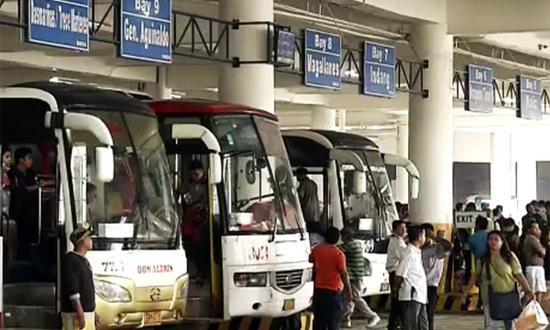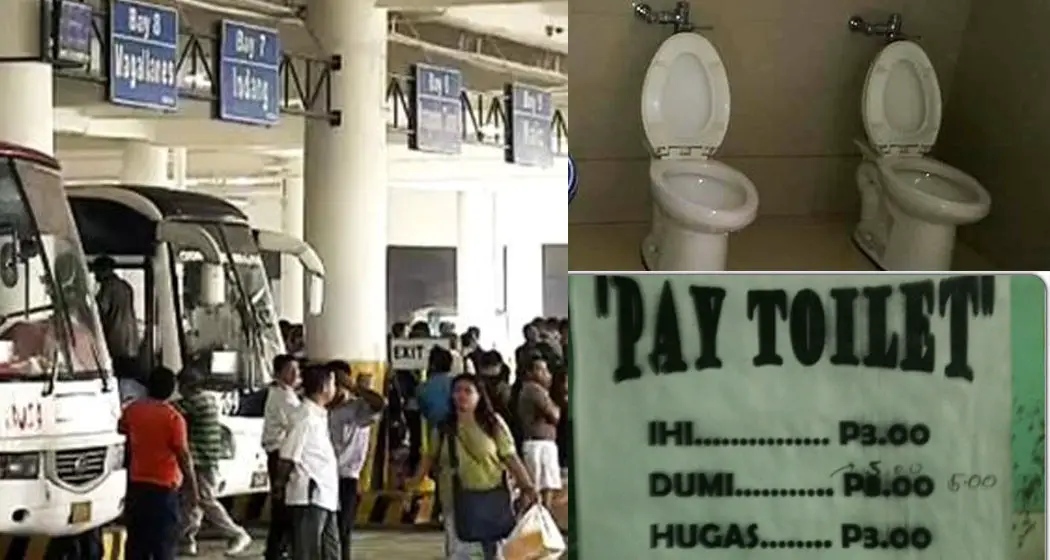Wouldn’t it be nice to have free Internet access in land transportation terminals? Also, it’s better and nice to have cleaner and better facilities, too. Well, good news because the Congress submitted Senate Bill 1749 or also known as the “Act to Improve Land Transportation Terminals, Stations, Stops, Rest Areas, and Roll-on/Roll-Off (RoRo) Terminals.”

The Congress submitted this bill to the Malacañang which mandates transportation terminals to improve their facilities and to add free Internet accesses to commuters.
Read: Law That Commands Motorcycles to Have Bigger License Plates, Signed by Duterte
What does Senate Bill 1749 mandate?
As mentioned above, this act points directly to owners, administrators, and operators of land transportation terminals, stops, rest areas, RoRo stations, and stations to further enhance their facilities and equipment through the provision of free Internet access to commuters. More so, this bill requires them to have a more sanitary and hygienic facilities.
The free Internet provision actually falls under Section three (3) of the national law and states that the Department of Information and Communications Technology (DICT), in coordination and work with the Department of Transportation (DOTr), shall make sure that free Internet is given in terminals of land transportation. This is in pursuant to Republic Act No. 10929 or also known as the “Free Internet Access in the Public Places Act.”
Read: How Can You Verify a Plate Number Through the LTO?
Other than the free Internet, what other things does this bill require?
Since its name literally means making the offices and the establishments cleaner and more hygienic, this measure calls for better facilities and cleaner restrooms. Better and cleaner facilities mean that there’s proper ventilation in restrooms and that it’s well-lit.
More so, the water supply should be appropriate and that the flush system needs to be working fine. The prohibition on collection of fees to access these facilities will also be looked at, and the establishment of a station where a mother can allow her baby to breastfeed which is, of course, separate from the facilities that are sanitary.
What happens to owners and businesses who disregard this bill?
Any operator, administrator, or owner of the land transportation terminal who will fail to comply with the standards of sanitary facilities will be faced a fine in the amount of P5, 000.00 per day of violation.
Read: Child Safety in Motor Vehicles Law, Signed by President Duterte
On the other hand, those who will fail to abide to the prohibition on collecting fees for access to sanitary facilities will be charged a fine of P5, 000.00, too. Those who won’t be successful in providing and properly maintaining a lactation station will be charged P5, 000.00, again, for each day that it gets violated.
Will this ever become a law?
This bill that was enrolled and adopted by the House of Representatives was sent by the Presidential Legislative Liaison Office to the Office of the President on the 21st of March year 2019. In the event that the President doesn’t sign this into law thirty (30) days or a month from the receipt of his office, it will automatically lapse in to law.
When this happens, land transportation terminals officers, owners, and administrators will have ample time to provide what is needed to the public. Not abiding to the law, as we all know, will reprimand them with the charges and the fines necessary.
Read: Jaywalkers Will Now be Penalized
Have you ever hoped of cleaner sanitary facilities in land transportation terminals? I know what you’re thinking, almost all land transportation stops, terminals, rest areas, and stations have unsanitary cleaning. Although some have the initiative to sanitize and to make it hygienic enough, the majority of these stations and stops are unsanitary.
Well, with the Senate Bill 1749 or the Act to Improve Land Transportation Terminals, Stations, Stops, Rest Areas, and Roll-On/Roll-Off Terminals, we can expect a better, cleaner, and a less boring experience whenever we will be traveling by land.
What do you think of this new bill? Would this be effective in terms of serving the public? Or would this be additional cost to them because of the mandated cleaner and better facilities? Hopefully, government bodies and officials clarify whether or not this will incur changes in the pricing of land transportation since there will be free wi-fi available in these land transportation terminals and stations.


2 thoughts on “Bill That Looks to Have Cleaner Facilities and Free Internet in Land Transportation Terminals, Passed”